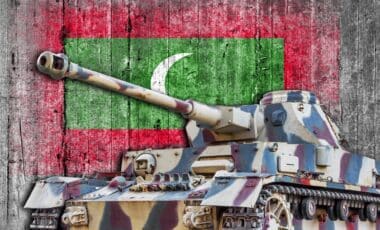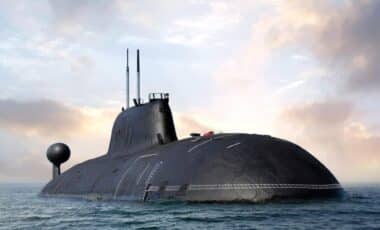As the initial results were seen of Germany’s invasion of the Soviet Union on June 22, 1941, observers around the world had every reason to believe that Germany was on a course to win the War and become one of the most powerful nations in all of history.
Four million men crossed the border into the Soviet Union during the invasion and quickly claimed large swaths of territory and inflicted heavy casualties on the Soviet Union. By the end of the summer, the Wehrmacht had swept through the Baltic states, the Soviet portion of Poland, and the western half of Ukraine. German forces had made their way to Moscow by October before the bitter cold set in and Soviet General Zhukov could organize a successful defense of the city.
The following spring, Hitler devised a new offensive in the East that would target the oil fields of southern Russia and capture the city of Stalingrad on the Volga river. Capturing the city would disrupt supply routes along the Volga and allow German forces to turn north and once again encircle Moscow. The Soviets were no less determined to defend the city as an important industrial and transportation center and a psychologically important city that bore the name of the Soviet Premiere.
 The initial phase of the German invasion, 1941. Map created by the History Department of the U.S. Military Academy.
The initial phase of the German invasion, 1941. Map created by the History Department of the U.S. Military Academy.
In September 1943, German forces entered Stalingrad, which provoked fierce house by house and street by street fighting. The brutality of the fighting is difficult to even imagine. 1.1 million Soviet soldiers became casualties, along with another 800,000 Axis fighters. But beyond the gruesome statistics, the battle for Stalingrad was the psychological turning point of all of the Second World War.
According to British historian Antony Beevor, Soviet soldiers shouted to German Prisoners of War after they had been captured, “This is how Berlin is going to look!” Advances to the east by German soldiers were about to be replaced with Soviet marches westward and no intelligent German believed that they could ever win a war of attrition, which is what Stalingrad became.
 German POW’s, 1943.
German POW’s, 1943.
The fighting was also romanticized almost immediately. First, by the Soviet propaganda machine and later by Hollywood, which produced films like Enemy at the Gates. The center of the fighting is now strewn with monuments celebrating Communism’s great victory over Fascism.
The real legacy of Stalingrad, however, was the wasted lives of so many young men (and women). Germany did not need to make Stalingrad a city of vital strategic importance. The main aim of the campaign was the capture of oil fields in the caucuses. That could have been achieved without taking Stalingrad. Hitler directly intervened to overrule his Generals, who were about to withdraw from Stalingrad to capture targets further south en route to the Baku oil fields. Hitler’s primary aim was the propaganda value of the city.
 German soldiers clear the streets of Stalingrad.
German soldiers clear the streets of Stalingrad.
Soviet preparedness for war was one of the primary reasons why Germany was able to so effectively fight the Red Army in the opening months of the war. Stalin had only recently purged the armed forces of needed officers out of a desire to further consolidate his power. Zhukov was spared but later said he always kept an emergency bag packed in case a knock on the door arrived. Had he been purged, it seems likely the Soviet Union would not have been able to win the war.
Stalingrad was ultimately a microcosm of the broader war in the east: a war of ugliness, cruelty, hatred, racism, misogyny, rape, and plunder. It is a leading candidate for the most brutal war ever fought.
Of course, some very important military principles were either learned or reinforced through Stalingrad. Military leaders must be cautious in spreading their troops too thinly, soldiers and civilians in a fight for their own country will often prove more motivated and willing to expend themselves, and that guerrilla warfare is a completely different matter than conventional warfare.
But, the symbolism of Stalingrad does continue to live on in more inspiring ways than simple cruelty due to the clashing egos of two very powerful men. It really did change the course of history and involved ordinary men and women, in addition to professional soldiers, fighting for their very lives. Today, in Volgograd, there are echoes of the conflict still, as the descendants of those fighters continue on in the legacy left for them.
 Russian President Vladimir Putin at a museum honoring the fallen at Stalingrad.
Russian President Vladimir Putin at a museum honoring the fallen at Stalingrad.








